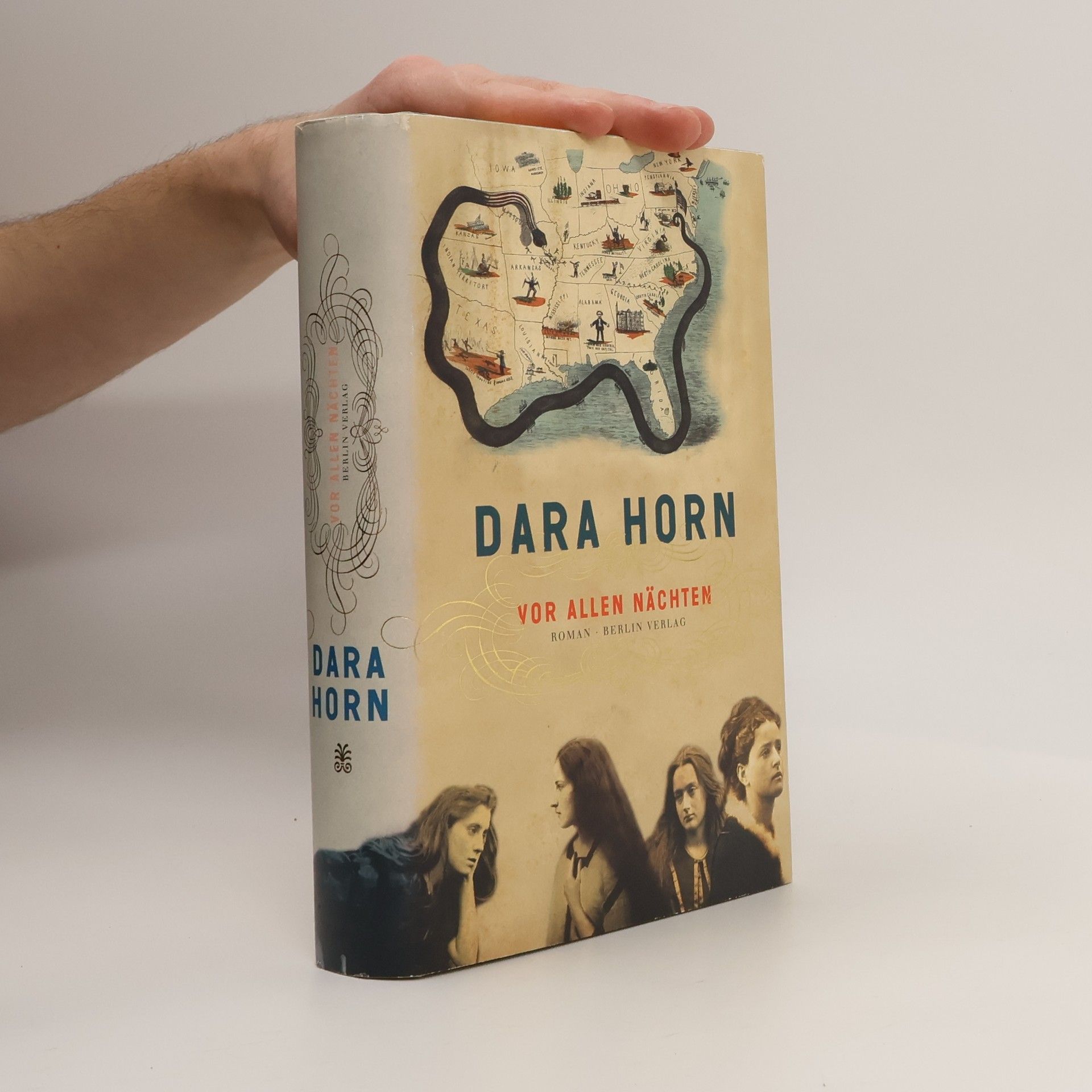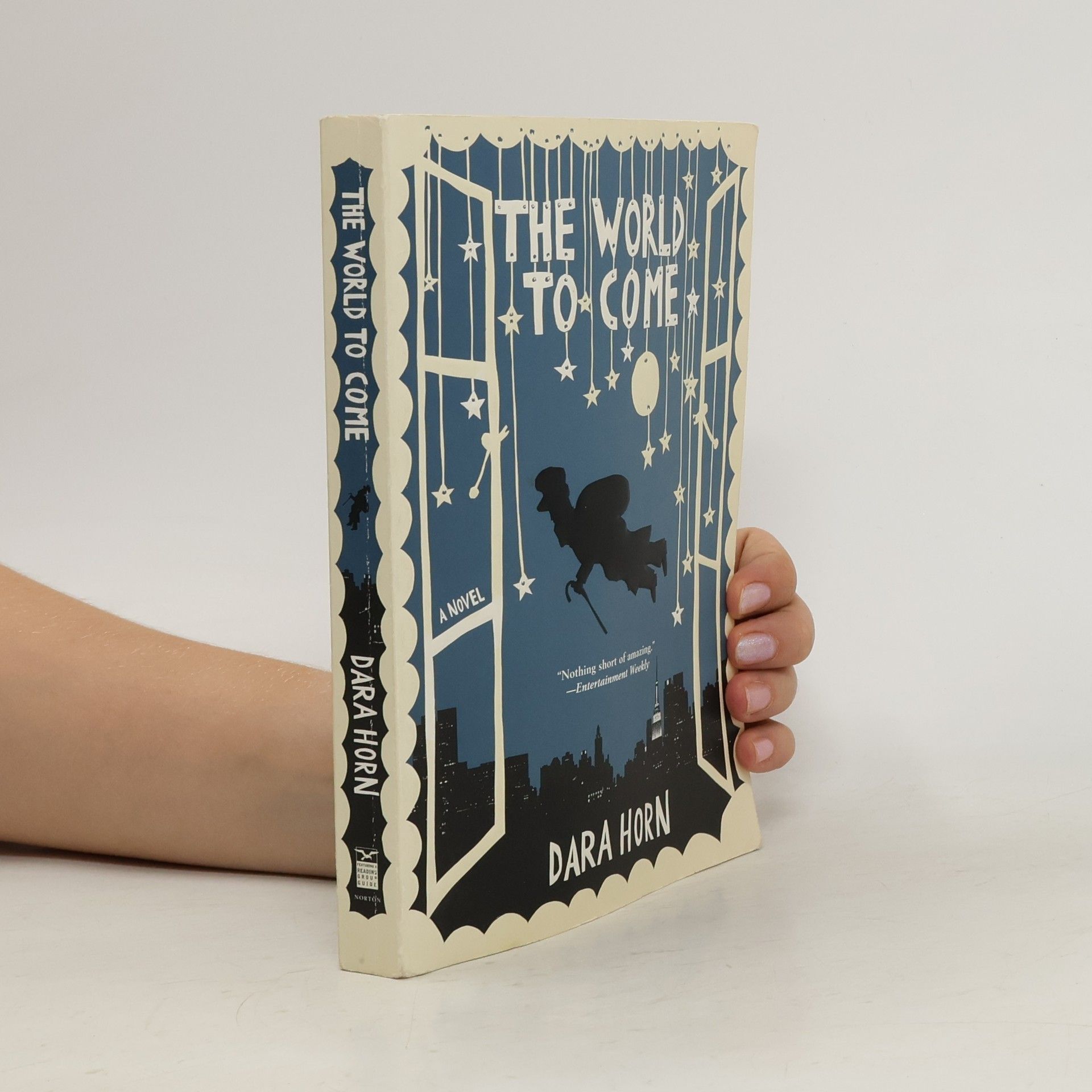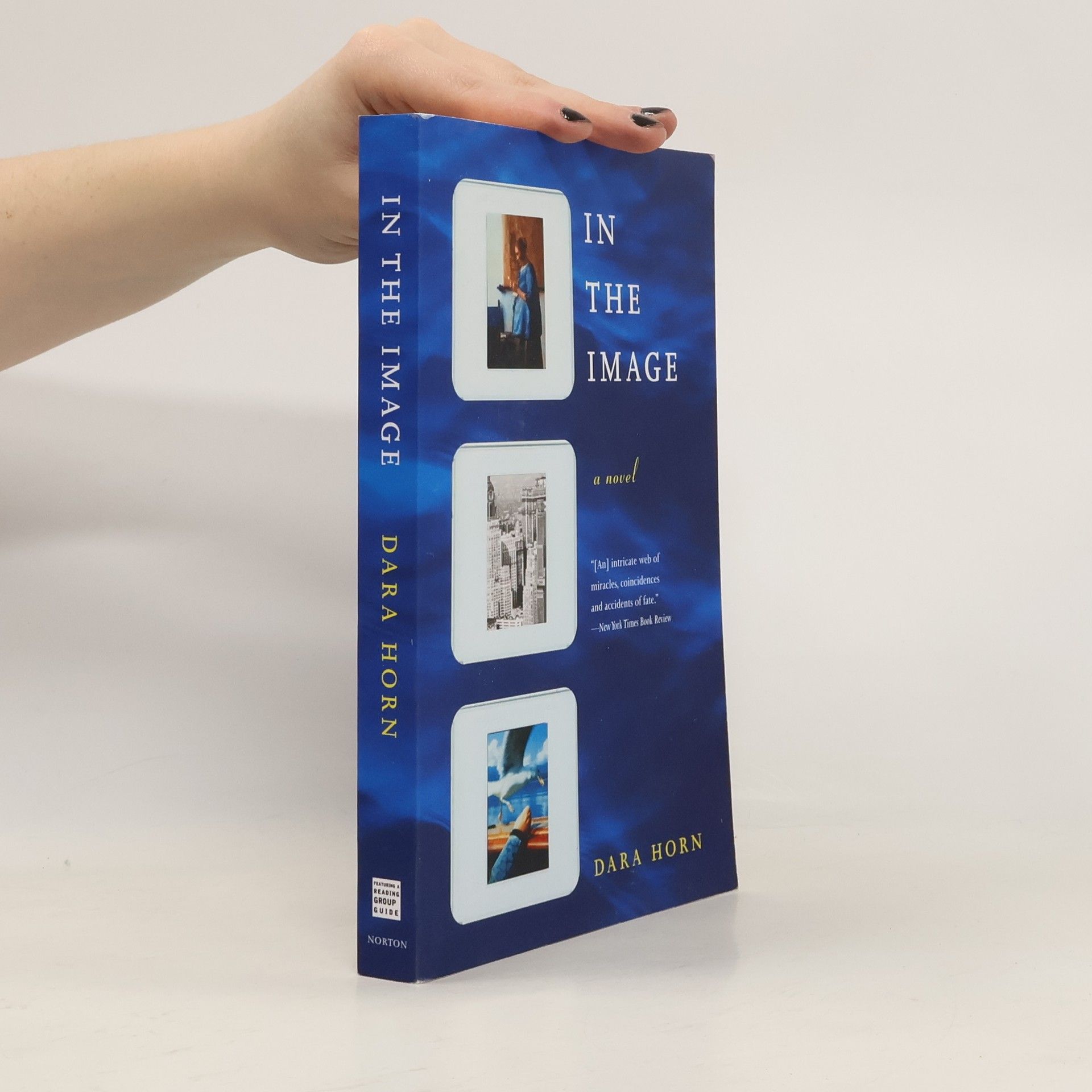People Love Dead Jews
- 272 pages
- 10 hours of reading
A startling and profound exploration of how Jewish history is exploited to comfort the living
Dara Horn is an acclaimed author whose novels delve into the complexities of Jewish identity and history within the modern world. Her writing is celebrated for its intelligence, depth, and sensitive exploration of relationships, faith, and the search for meaning. Horn masterfully weaves together tradition and modernity, offering readers profoundly resonant narratives.







A startling and profound exploration of how Jewish history is exploited to comfort the living
Exploring themes of spirituality and familial connections, the story follows Bill Landsmann, an elderly Jewish refugee in New Jersey, who is dedicated to collecting biblical images from around the world. His encounter with his granddaughter's friend, Leora, intertwines their lives, revealing deep links between their families' histories. This debut novel celebrates the fusion of secular and religious literature, honoring the past while uncovering treasures that can rejuvenate the present. A reading group guide is included for further discussion.
A million-dollar Chagall is stolen from a museum during a singles' cocktail hour. The unlikely thief, former child prodigy Benjamin Ziskind, is convinced that the painting once hung in his parents' living room. This work of art opens a door through which we discover his family's startling history--from an orphanage in Soviet Russia where Chagall taught to suburban New Jersey and the jungles of Vietnam.
A million-dollar Chagall painting is stolen during a singles' event at a New York museum. The painting has an unusual history, and now there is an unlikely thief - Benjamin Ziskind, a lonely former child prodigy who now writes questions for TV shows and who believes the painting once belonged to his family. Benjamin's moment of apparent madness in stealing the painting is just one such moment in a web of riveting stories. For him, for his family and for Chagall, life is a breathtaking collision course of past, present and future, and ‘the world to come' starts right now.
Die Geschichte handelt von Jacob Rappaport, dem Sohn jüdischer Einwanderer, der während des amerikanischen Bürgerkriegs zwischen den Fronten gerät. Im Jahr 1861 in New York soll er die einfältige Emma heiraten, doch am Vorabend der Hochzeit flieht er vor den Plänen seines Vaters. Jacob schließt sich den Nordstaatlern an, die für die Abschaffung der Sklaverei kämpfen, und wird auf eine gefährliche Mission geschickt. Er wird auf ein Schmugglerschiff nach New Orleans gebracht, wo er seinen Onkel vergiften soll, der als Spion für die Südstaatler plant, ein Mordkomplott gegen Präsident Lincoln zu schmieden. Nach seiner Rückkehr in den Norden wird Jacob erneut in den Süden geschickt, diesmal um Eugenia Levy, die Tochter eines alten Bekannten und feindliche Spionin, zu heiraten und ihre Aktivitäten auszuspionieren. Doch die vier charmanten Schwestern der Levy-Familie bringen Jacob in eine Zwickmühle, und er beginnt, seine Loyalitäten zu hinterfragen. Dara Horn erzählt mit Witz und Raffinesse die Geschichte eines zögerlichen Helden, der in den Wirren des Krieges lernt, für sich selbst einzustehen und seinen eigenen Weg zu finden.
Dara Hornová je známá jako spisovatelka, ale i jako autorka pronikavých esejů. Poté, co ji dlouhá léta významné deníky a časopisy žádaly, aby psala o tématech souvisejících s židovskou kulturou, si uvědomila, co mají všechna tato zadání společného: měla psát o mrtvých Židech, nikdy o živých. V těchto esejích se Hornová zamýšlí nad tak odlišnými tématy, jako je celosvětové zbožňování Anne Frankové, mytologie o změně židovských jmen na Ellis Islandu, velkolepá putovní výstava Osvětim, propagace židovské kultury v čínském Charbinu a málo známý život „spravedlivého Nežida“ Variana Frye, který pomohl zachránit před nacisty Arendtovou, Mahlerovou, Werfela, Chagalla, Feuchtwangera a řadu dalších intelektuálů. Svým často sarkastickým psaním potvrzuje vitalitu, složitost a hloubku židovského života v konfrontaci s antisemitismem, který zdaleka není odzbrojen mantrou „Nikdy nezapomeneme“, ale naopak je na vzestupu. Poutavé texty čtenáře vyzývají, aby se zabýval tím, proč nás tolik fascinují minulé židovské tragédie a proč máme tak málo úcty k židovským životům, které se odvíjejí v současnosti. Bolestně aktuální čtení.
Když nesmrtelnost není dar, ale prokletí. Ráchel má problém: nemůže zemřít. Její současné potíže – skomírající podnik, dospělý nezaměstnaný syn a mrtvý manžel – jsou ničím oproti tomu, co zažila za posledních dva tisíce let. Od chvíle, kdy v Římany okupovaném Jeruzálemě zaplatila svou smrtelností za to, aby mohl žít její syn, zkusila už všechno, aby mohla pokojně odejít z tohoto světa. Když se však Ráchelina vnučka Hannah pustí do převratného výzkumu v oblasti DNA, svitne jí nová naděje...